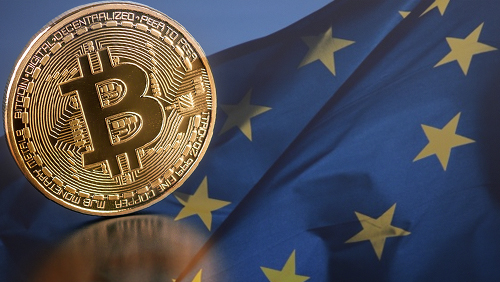 Bringing bitcoin exchanges’ anonymous trading practices to the public could be the key to tracking down terror groups’ funding, according to the European Union executive arm.
Bringing bitcoin exchanges’ anonymous trading practices to the public could be the key to tracking down terror groups’ funding, according to the European Union executive arm.
Last month, a senior official of the European Commission (EC) told the European Parliament that the commission doesn’t see the need to regulate digital currencies just yet because they are more focused on understanding “better what is happening.”
Now weeks later, the commission came out with an action plan that details several changes to its Anti-Money Laundering Directive (AMLD). The amendments, according to the commission, will help strengthen the government’s fight against terrorism financing.
The plan doesn’t actually have any piece of evidence to prove virtual currencies are being used to finance terrorism, but EC feels the need to come up with a regulation as part of its ongoing effort to stop terror attacks. Better to be safe than sorry, right?
Under the commission’s plan, digital currency exchanges will be required to report who used their services and when they were used.
“There is a risk that virtual currency transfers may be used by terrorist organizations to conceal transfers, as transactions with virtual currencies are recorded, but there is no reporting mechanism equivalent to that found in the mainstream banking system to identify suspicious activity,” the EU executive arm said.
EU, however, doesn’t single out digital currency: the action plan also calls for a re-think of how authorities will be able to identify users of pre-loaded credit cards with affecting the mass market.
The current AMLD doesn’t cover digital currencies, but if and when cryptocurrencies are included in the new AMLD directives, then bitcoin exchanges will have to bid farewell to anonymous transactions, which is arguably its bestselling feature.
Several weeks ago, Oliver Salles, senior financial services official of the commission, said they are “not in a hurry” to regulate financial products connected to digital currencies.
There are about 600 types of digital currencies being used around the world today, and Bitcoin accounts for about 90 percent of the $7 billion sector, according to Reuters.
However, bitcoin has gotten a bad rap in 2013 after authorities in the United States uncovered the notorious “deep web” Silk Road, which is known for allowing its users to transact a wide range of illegal practices, including hiring hitmen and buying and selling drugs, using virtual currency.
Last year’s attack in Paris hasn’t helped either, after hackers claimed terrorists used bitcoin to fund the operation. The event only sparked renewed debates on the potential of digital currencies to be used to finance terrorism and money laundering.





